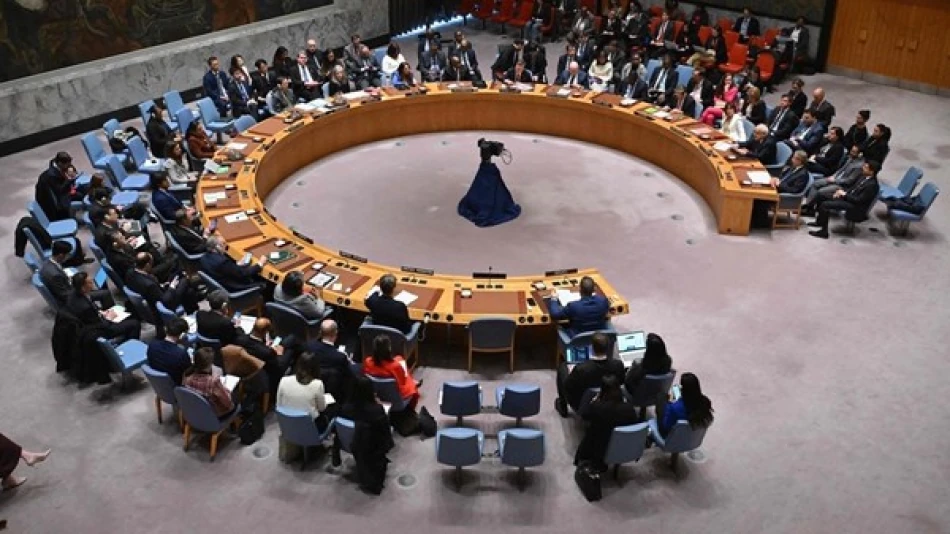
Trump Sets Deadline for Ukraine Crisis Resolution Amid High-Stakes Negotiations
Trump Sets August 8 Deadline for Ukraine Peace Deal, Threatens Russia with New Sanctions
President Donald Trump has drawn a hard line on the Ukraine crisis, giving Russia and Ukraine until August 8 to reach a peace agreement or face additional U.S. economic measures. The ultimatum, delivered through diplomatic channels to the UN Security Council, represents Trump's most concrete timeline yet for resolving the three-year conflict that has reshaped global geopolitics and strained international alliances.
The Diplomatic Ultimatum Takes Shape
Senior U.S. diplomat John Kelly addressed the 15-member UN Security Council on Thursday, making clear that both Russia and Ukraine must negotiate an immediate ceasefire and lasting peace framework. "The time has come to reach an agreement," Kelly stated, emphasizing that the United States stands ready to implement additional measures to secure peace.
The August 8 deadline gives negotiators roughly ten days to achieve what three years of intermittent diplomacy has failed to accomplish. Trump's Tuesday announcement that the U.S. would begin imposing tariffs and other measures on Russia within ten days if Moscow shows no progress adds economic teeth to the diplomatic pressure.
Istanbul Talks Show Limited Progress
The diplomatic backdrop reveals both promise and frustration. Kiev and Moscow have conducted three rounds of talks in Istanbul this year, successfully arranging prisoner exchanges and the return of soldiers' remains. However, these humanitarian gestures have not translated into substantive progress toward ending the broader crisis.
Russian Deputy UN Ambassador Dmitry Polyansky indicated Moscow's willingness to continue Istanbul negotiations but expressed skepticism about Western motives. "Despite the meetings in Istanbul, we still hear voices from those who believe diplomacy is merely a means to criticize Russia and exert pressure on it," he told the Security Council.
Ukraine Demands Unconditional Ceasefire
Ukraine's position remains uncompromising. Deputy Ukrainian UN Ambassador Kristina Hayovishyn emphasized that any resolution must align with UN Charter principles and include an immediate, unconditional ceasefire as the essential first step. Her call for confronting Russia "with unity, determination, and action" suggests Kiev may view Trump's deadline as leverage rather than pressure to compromise.
Economic Pressure as Diplomatic Tool
Trump's threat of additional tariffs and economic measures represents a shift toward using America's economic leverage more aggressively. This approach mirrors tactics used in previous trade disputes but applies them to a geopolitical crisis with global implications. The strategy assumes that economic pain can force diplomatic breakthroughs where traditional negotiation has stalled.
For investors and markets, the August 8 deadline creates a clear inflection point. Energy markets, defense contractors, and European economies could see significant volatility depending on whether the deadline produces agreement or escalation.
Historical Context and Precedent
The three-year duration of the Ukraine crisis has already exceeded many analysts' initial expectations. Unlike previous post-Cold War conflicts, this dispute involves major powers with significant economic interdependencies, making resolution both more urgent and more complex.
Trump's deadline approach contrasts with the previous administration's longer-term diplomatic strategy, potentially reflecting a belief that artificial urgency can break negotiating deadlocks. However, similar ultimatums in international relations have produced mixed results, sometimes forcing breakthroughs but occasionally hardening positions.
The Stakes Beyond August 8
The August 8 deadline will test whether economic pressure can succeed where diplomatic engagement has struggled. Success could establish a template for resolving other frozen conflicts, while failure might signal the limits of economic coercion in contemporary geopolitics.
For global markets and international relations, the coming days will determine whether Trump's transactional approach to diplomacy can produce the comprehensive peace that has eluded negotiators for three years. The answer will likely reshape both the conflict itself and America's role in international crisis resolution.
Most Viewed News

 Layla Al Mansoori
Layla Al Mansoori






